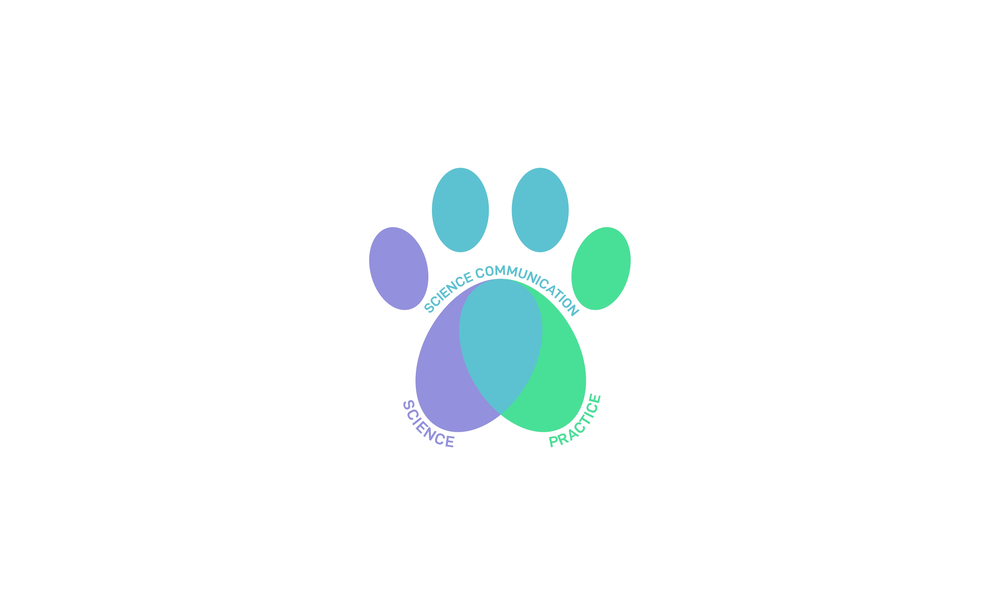Table of Contents:
Understanding the Foundations of Dog-Human Relationship
At the core of any strong dog-human relationship are trust, communication, and mutual respect. Building these elements does not happen overnight; it evolves through consistent and positive interactions that enable both you and your dog to understand and predict each other's behaviour. Recognizing the individual personality of your dog, their signals of comfort or distress, and how they prefer to interact can lay a solid foundation for a nurturing relationship.
Historically, dogs have been companions to humans for thousands of years, aiding in tasks ranging from hunting to protection to emotional support. Successful relationships between dogs and their human companions are built upon clear, respectful, and empathetic communication. Acknowledging your dog's inherent needs as a social animal is essential in fostering a profound bond. Engaging with them not just physically through walks or play, but emotionally and cognitively through training and socialisation, forms a key part of this process.
In essence, to truly understand and nurture a positive relationship with your dog, it is crucial to consider their needs, desires, and emotions, providing a ground for mutual respect and affection. This foundation supports all aspects of your shared life, making your interaction not only a responsibility but a rewarding adventure.
The Role of Communication in Strengthening Your Bond
Effective communication is pivotal in enhancing the dog-human relationship. It encompasses more than just the verbal signals during training; it involves understanding and responding to non-verbal cues such as body language, facial expressions, and even the tone of voice. By tuning into these subtle signals, you can develop a deeper understanding of your dog's feelings and needs.
Dogs are keen observers and can pick up on nuances in our behaviour that even we might overlook. They respond not only to what we say but how we say it. For instance, they are more likely to respond positively to signals delivered in a calm and steady voice rather than those given in a harsh tone. This sensitivity to vocal cues plays a crucial role in building trust and security within the relationship.
Moreover, consistency in communication is vital. For example, using the same words to signal specific behaviours helps your dog understand and follow your instructions more effectively. Likewise, maintaining consistent body language avoids confusion and helps your dog feel more secure in understanding expected behaviours.
It is also beneficial to learn to 'speak dog' by paying attention to the ways your dog communicates with you. Observing their ear positions, tail wags, and posture can provide insights into their emotional state and intentions, allowing for more empathetic and responsive human interactions.
Creating a Trust-Based Partnership with Your Dog
Establishing a trust-based partnership with your dog is essential for a nourishing and enduring connection. This trust is cultivated through reliability and predictability in your actions which reassure your dog of your consistent care and leadership.
One key aspect is providing a secure environment where your dog feels safe. This can be achieved by setting clear boundaries that are enforced gently but firmly. A stable routine, including regular feeding times, walks, and quiet time, can also help your dog to feel secure and understand that they can rely on you for their basic needs and comfort.
In addition to physical security, emotional support plays a critical role in building trust. This involves being attuned to your dog's emotional states and offering comfort and reassurance during times of stress or fear. Positive reinforcement techniques, such as rewarding good behaviour with treats or praise, reinforce a trustful relationship by associating you with positive outcomes.
Furthermore, reliability in training and behaviour management fosters trust. Dogs thrive on consistency, and inconsistent signals or unpredictable reactions can undermine trust and cause confusion. Being a consistent leader with rules, training, and responses helps to develop a strong bond rooted in mutual respect and understanding.
Lastly, ensuring your dog's health and well-being through regular veterinary care, proper nutrition, and adequate exercise demonstrates your commitment to their overall life quality, further strengthening the trust between you. By addressing these aspects reliably, you convey to your dog that you are a dependable protector and friend.
The Impact of Consistent Positive Reinforcement
The implementation of consistent positive reinforcement has shown profound effects in strengthening the dog-human relationship. This training method harnesses the power of reward to encourage desirable behaviours, thereby promoting a positive atmosphere and enhancing mutual engagement.
Positive reinforcement involves rewarding your dog immediately after they display a desired behaviour, making it more likely for the behaviour to recur. This process not only trains the dog in what actions are preferable but also fosters an environment of mutual respect and understanding. The rewards can vary from treats and toys to verbal praise and physical affection, depending on what motivates your dog the most.
The advantages of this approach are manifold:
- Enhances Learning: Dogs are more responsive and learn faster when their actions lead to pleasant outcomes rather than fear of punishment.
- Builds Enthusiasm: Positive reinforcement makes learning enjoyable for the dog, encouraging them to engage eagerly in training sessions.
- Reduces Fear: Unlike aversive techniques, positive methods do not evoke fear, minimising stress and potential behavioural issues.
- Promotes Trust: Regularly rewarding dogs for their behaviour strengthens trust, as they associate responding to your signals with positive outcomes.
To optimise the impact of positive reinforcement, consistency is key. Changing the rules or the rewards unpredictably can cause confusion and anxiety, which might counteract trust and hinder progress. Thus, maintaining a consistent approach not only simplifies training but also solidifies the foundational trust and respect within the dog-human relationship.
Incorporating positive reinforcement into daily interactions extends beyond formal training sessions. Consistent application of these principles in everyday situations reinforces the learned behaviours and underlines the reliability of the bond between you and your dog.
Activities to Enhance Your Connection with Your Dog
Engaging in activities with your dog is a fantastic way to deepen the bond you share. These shared experiences not only provide enjoyment and exercise but also offer valuable opportunities for communication and understanding.
Here are some enriching activities to consider:
- Interactive Games: Games like fetch, tug-of-war, or hide-and-seek stimulate your dog's mind and body while fostering teamwork and communication between you both.
- Training Sessions: Regular, short training sessions using positive reinforcement can be a fun and rewarding way to spend time together, improving your dog's skills and your ability to communicate effectively.
- Long Walks or Hikes: Exploring new environments with your dog not only provides them with physical exercise but also stimulates their senses and keeps them curious about their surroundings.
- Dog Sports: Participating in dog sports as well as other activities such as mantrailing can be incredibly rewarding and help build an incredible level of understanding and trust as you both work towards common goals.
- Relaxation Time: Simply spending quiet time together, whether it's cuddling on the couch or lying in the grass at a park, can strengthen your bond by reinforcing your dog's trust in your presence as a source of comfort and security.
Introducing these activities consistently into your routine not only spices up your dog's daily life but enhances the emotional connection, reinforcing a lasting dog-human relationship. Moreover, observing your dog's preferences for certain activities can give deeper insights into their personality and help tailor future engagements to their liking, ensuring both of you gain the most from each interaction.
Notably, ensure that all activities are suitable for your dog's age, health, and temperament to avoid any undue stress or injury. Each shared moment should be a source of joy and a step towards a stronger, happier relationship.
Recognizing and Addressing Your Dog's Emotional Needs
Understanding and catering to your dog's emotional needs is pivotal in nurturing a substantial and affectionate dog-human relationship. Dogs experience a range of emotions, such as happiness, fear, positive excitement, and frustration.
Key strategies to recognize and effectively respond to your dog's emotional states include:
- Observation: Pay close attention to changes in your dog’s behaviour or body language that might indicate discomfort or happiness. For example, tail wagging, relaxed ears, and playful behaviour typically signify contentment, whereas tucked tails and flattened ears might suggest anxiety or fear.
- Environment Adjustment: Create a safe and comforting environment. Ensure they have a quiet retreat space to unwind if the surroundings get too overwhelming. This can be particularly important in busy households or during loud events like fireworks.
- Socialisation: Expose your dog to various scenarios—people, places, other animals—to boost their confidence and reduce fearfulness. Proper socialisation can help manage a dog's responses and improve their overall emotional health.
- Reassurance: Offer calm and comforting reassurance during stressful situations. Your calm presence can significantly help your dog manage their anxiety and reinforce your role as a trusted caretaker.
Additionally, it's vital to look out for signs of deeper emotional issues like chronic anxiety or depression. Behaviours such as persistent withdrawal, decreased activity levels, or changes in appetite could necessitate a consultation with a vet or a professional dog behaviourist.
Addressing your dog’s emotional needs isn't just about handling negative emotions but actively fostering positive experiences. Prioritising their emotional well-being exemplifies your commitment to the relationship and can dramatically improve your mutual dog-human relationship and well-being.
Understanding that your dog's emotional responses can be complex and may vary widely is essential. This knowledge encourages a proactive approach to managing and enhancing your shared life, ensuring both you and your dog enjoy a fulfilled and joyful existence together.
The Benefits of a Strong Dog-Human Relationship for Overall Well-being
The bond shared between humans and dogs extends significant benefits for the overall well-being of both. A strong dog-human relationship can provide emotional support, enhance physical health, and contribute to a more joyful and fulfilling life.
Some of the key benefits include:
- Reduced Stress and Anxiety: The companionship of a dog has been shown to decrease levels of stress and anxiety in humans. Engaging in regular petting or play sessions releases oxytocin in the brain, often referred to as the 'cuddle hormone', which promotes feelings of relaxation and happiness.
- Improved Physical Health: Dog owners tend to lead more active lifestyles, as dogs require regular exercise like walks and active play. This can help increase fitness levels, lower blood pressure, and reduce the risk of various diseases.
- Increased Social Interaction: Dogs are natural conversation starters and can enhance social connections for their owners. This can be especially beneficial for individuals who may otherwise feel isolated.
- Enhanced Emotional Development: For children, growing up with a dog can teach responsibility, empathy, and compassion. The unconditional love from a dog can also bolster self-esteem and contribute to emotional stability.
The reciprocate benefits for dogs include improved behavioural patterns, better health outcomes due to regular veterinary care and exercise, and an enhanced sense of security knowing they are part of a loving and protective family.
Ultimately, investing in building and maintaining a meaningful dog-human relationship not only enriches daily life but also contributes significantly to long-term health and happiness. The cycle of mutual care and affection that develops between a dog and its owner further illustrates the profound nature of this unique interspecies friendship.
Conclusion: Cultivating a Lifelong Bond with Your Dog
Cultivating a lifelong bond with your dog hinges on understanding, patience, and consistent nurturing of the relationship. This steadfast commitment to your canine companion can significantly enhance the quality of life for both you and your dog, fostering a durable and rewarding partnership.
A few key aspects to remember for maintaining and strengthening this bond throughout your dog's life include:
- Consistent Communication: Keep interactions predictable and positive, ensuring you both always know what to expect from each other.
- Meeting Emotional Needs: Just as you care for your physical health, attend to the emotional dynamics of your relationship. Recognise when your dog is stressed, anxious, or overjoyed, and respond appropriately.
- Regular Engagements: Dedicate time to play, train, and relax together. This not only keeps your dog mentally and physically fit but also deeply entwines your lives.
- Adaptation Over Time: As both you and your dog age, be prepared to modify your routine to suit changing health and energy levels. This adaptability shows your commitment to their well-being at every life stage.
Remember, each dog-human relationship is unique. What works for one pair might not work for another, and the bond you share with your dog is crafted by the moments you cherish and the challenges you conquer together. Just as in any profound relationship, the effort you invest profoundly impacts your mutual happiness and harmony.
In conclusion, the journey of growing alongside your dog is one filled with joy, learning, and love. By embracing the principles outlined, you lay a foundation for a lifelong companionship marked by deep mutual understanding and respect. Let each day with your dog be a step towards an even more fulfilling union.
FAQs on Enhancing Your Bond with Your Dog
What are the key elements for strengthening my relationship with my dog?
The key elements include consistent communication, understanding your dog's emotional needs, engaging in shared activities, regular training using positive reinforcement, and providing affection and security.
How can I effectively communicate with my dog?
Effective communication with your dog involves more than verbal commands; it includes recognizing and responding to their body language, using consistent cues, and maintaining a calm and steady voice to build trust and confidence.
What role does positive reinforcement play in training?
Positive reinforcement enhances learning and motivation by rewarding desired behaviours, which encourages your dog to repeat those behaviours. It fosters a positive relationship and reduces fear and anxiety in training.
Why is it important to understand my dog's emotional needs?
Understanding and addressing your dog's emotional needs is crucial for their well-being and helps prevent behavioural issues. It involves recognising signs of stress or happiness and responding appropriately to support their emotional health.
What activities can help strengthen the bond with my dog?
Activities such as regular walks, playing interactive games, participating in dog sports, and engaging in training sessions can significantly strengthen your bond. These activities not only provide physical and mental stimulation but also enhance mutual understanding and trust.








